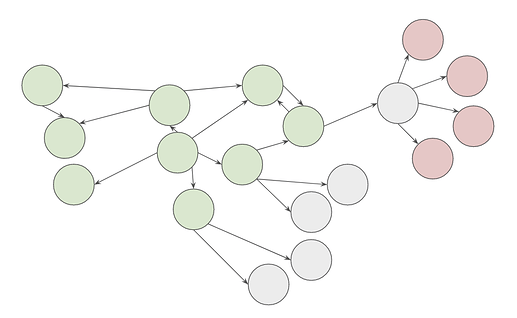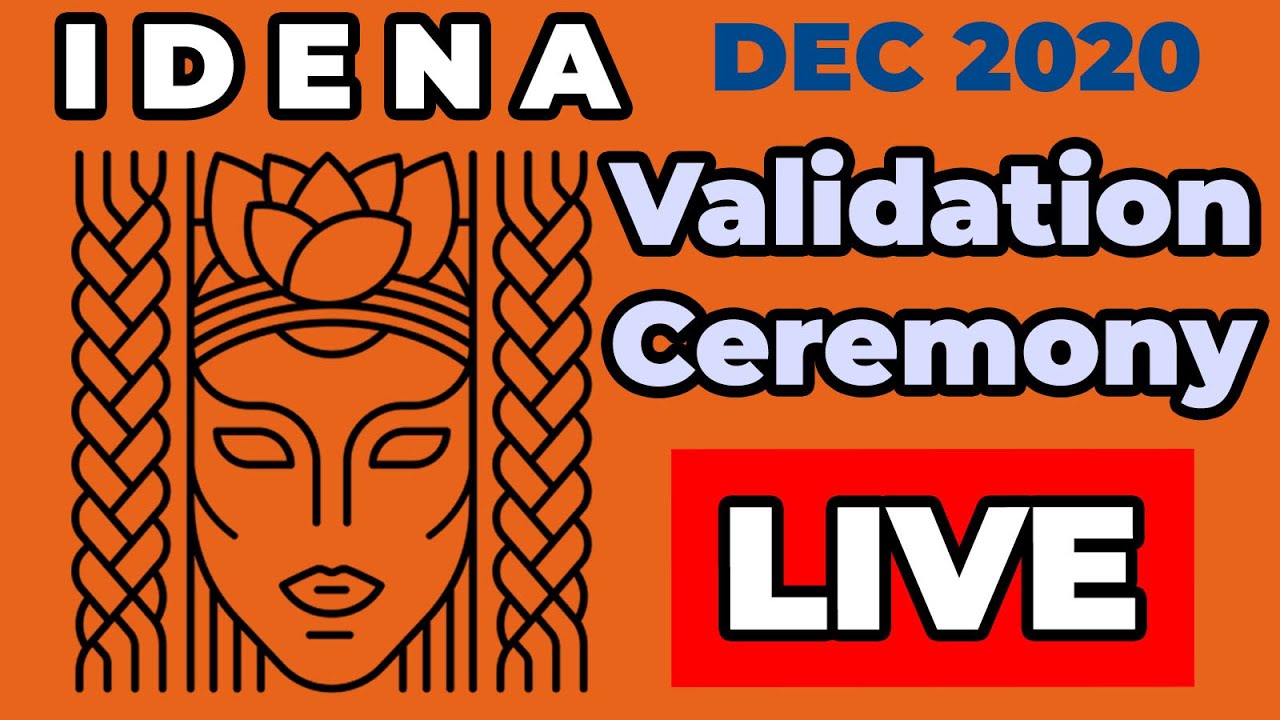The past
The last year was quite hectic for Proof Of Humanity where all the attention was focus internally (and it made sense, with proposals objectively destroying the protocol getting close to passing).
The forking vote has been fantastic in solving those, we can wish good luck to the other team (the “Open” team who now has their own forum) and focus on building both the protocol and the ecosystem.
The current situation
Proof of personhood protocols are more hyped then ever. This week got the launch of Worldcoin at a crazy valuation and Vitalik’s article on Proof of Personhood biometrics.
This led to a lot of recent attention to Proof Of Humanity but also to Worldcoin which is the biggest and worst competitor (I’m pretty positive about some competitors like BrightID or Idena, but I believe Worldcoin is based on a fundamental missunderstanding of computing and a disaster waiting to happen).
This is both a risk (of the Proof Of Personhood space being dominated by Worldcoin until it breaks) and an opportunity (of getting more visibility, traction and people involved in the project).
The protocol
V2
The version 2 will allow two main improvements:
- Be multichain (starting with Ethereum and Gnosis chain) which will allow people to register with way cheaper gas costs and deposits (a huge part of deposits serve to compensate for the challenger and juror gas costs, so reducing gas costs also reduced the deposit).
- Have a unique human ID constant across registrations. This allows to better handle rewards to humans whose registration expire and allow usecases such as wallet recovery (where assets can be tied to human IDs such that even if you lose your keys, you can get back your human ID).
We will probably wait a bit to launch it as it is important to have strong apps on top at launch (otherwise there isn’t much reasons to register).
Short term policy updates.
- Get rid of the remnant of the internal disputes by putting back English as the only language the registration sentence can be said in.
There is no rationale behind it and it was only a political move trying to appeal to the Spanish speaking community (which it is also harming) as the policy is explicit that accents and mispronunciations are allowed.
A unique sentences simplifies the juror and challenger work (thus lower fees, thus lower deposits) and makes it easier to use the sentence as a way to find / prove duplicates (it’s significantly easier to find if two voices are from the same person when they say the same thing). - Protect better against sockpuppeting (making other people register and keep the key to their account) by adding a sentence such as “I certify that I am doing this registration on my own behalf and that I fully control the address displayed”. This, of course is not a 100% perfect solution as people may still accept money for registration or may not speak English (but if someone tries to get a lot of puppets in an area, it’s likely someone speaking English would notice those and inform others) but this allows to:
- Increase the cost of sockpupetting. As people would know that registering with an address they don’t control is not allowed and that they are doing something wrong. This would have a cost for participants ranging from the risk of having a video of them publicly lying on the internet to criminal charges (making or using a false attestation can lead to up to 3 years and up 50k$ fine under French law, obviously those are maximums and someone would need to really do that at scale to reach those numbers, but that’s still a legal risk for them).
- Turn it into “perjury” which is considered immoral by other systems such as Kleros (for example, this would make buying/selling PoH account something not allowed in a Kleros escrow).
- Give incentives to sockpuppets to reapply themselves, by asking something like “I am aware of the rewards I will get by being registred”. That was an idea in Vitalik’s article of making sure people registering known they would get something out of it so that if they are asked to do suckpuppets registration, they can register themselves afterward (only a small portion would do this, but this could be used to detect sockpuppet clusters).
Longer term Sybil detection
As PoH would become more useful, the sophistication of attackers would increase. We’ll see more sockpupetting, AI videos and so on.
I think the way to prevent those is for Proof Of Humanity to evolve in a more holistic Sybil prevention protocol. This could include:
- Using graph analysis tools looking at the social graph (who vouches for whom), in order to detect Sybil attacks. All humans in the graph would get a score on their likelihood of being Sybils and accounts at high risks would need to lower their risks (by having more people from other parts of the graph vouch for them).
Here users in green have a high score in the graph as they are more “central” and “connected”. Gray users on the edge and can still register. But red users are at higher chance of being Sybils so those would require more vouches from other parts of the graph before they can pass their registration to pending.
There is some literature on this problem and we can evaluate which algorithm would be the most appropriate.
Requiring more vouches (probably just 2 vouches) would increase the efficiency of this method.
We could partner with graph based Proof Of Personhood projects such as BrightID and CircleUBI. - Registrant interviews. The idea is that after making a registration, humans would be provided a videochat room to interact with potential challengers for a few minutes. This would allow challengers to verify that people are not sockpupets or AI generated persons. Not everyone would necessarily need to go there but this would be limited to cases where there are suspicions (such as a challenge ongoing), people with risky graph scoring, and people close to other “nodes” which were rejected as attackers.
You can see that there is some tradeoff between ease of use and security. Graph analysis would lead to a small slow down of registration for communities bootsrapped by a few individuals and registrant interviews would cost more time to registrants.
Ecosystem development
Making a good Sybil resistant protocol is only half of the equation. The other part is developing the ecosystem. I believe significantly more resources should be spent on this. I could this taking a fulltime position and a significant support from the community.
Monetary benefits
The $UBI token has been extremely useful in providing an incentive for people to register. However the project seems abandoned by his founder and didn’t try/manage manage to make an economy around it.
I’m still bullish on an Universal Basic Income token as it answers the main problem with crypto currently:
- Most tokens distributions are unfair to newcomers.
- Crypto wealth is too concentrated.
CircleUBI
We are working with circleUBI to create a Proof of humanity Group Currency (PGC) token made by wrapping circle tokens of people registered in PoH.
Circles are UBI tokens that people emit which currently use a “Trust is risk” model. Everyone can mint their own circles, but people only accept circles tokens of people they have vouched (as if you want to pay someone who hasn’t vouched you, you can find a path on the graph to still give them some tokens they can trust).
The scheme is pretty interesting (as it doesn’t require a binary Proof Of Personhood), but has the disadvantage of leading to non fungible (thus hard to trade) tokens.
They are currently working on group currencies allowing group of users verified in some way (here by PoH), to wrap their circles into a fungible one (here PGC). There was a proposal for the GnosisDAO to provide liquidity for PGC but it didn’t reach the quorum. During the vote, some people asked to separate the PGC liquidity proposal from the Berlin circle funding and to have Karpatkey handling the liquidity instead of us. We’ll remake an updated proposal.
UBI through airdrops
Providing UBI to people may not need to be done with a specific token, another way to provide a “defacto” UBI is to have projects airdropping some of their tokens to people registered.
They may do so for various reasons such as:
- Ensuring a wider distribution of their tokens.
- Making their project known to PoH members.
- As a charitable initiative showing their commitment to a better distribution of wealth creation.
Or any combination of those.
We could start by asking the KlerosDAO for a PNK airdrop. And then find other projects interested by including PoH humans in their airdrops.
Non UBI usecases
We should also try to position ourselves for:
- Account recovery (with the unique human ID, we could have some safe which can be recovered after the owner loses his private key but reregistering with the same human ID).
- Social media Sybil resistance (ex: Lens). Those platforms could give some verified badges to registered users so that people know they are real and not bots. This doesn’t require everyone to be registered as it can serve to initialize graph based algorithms for content displayed (if there is some cluster of people interacting with each others but none are registered, it’s likely a bunch of bots and it shouldn’t be shown to other users) and as a “checkmark”.
- Small value uncollateralized loans. Sure nothing on chain can force people to reimburse their uncollateralized loans, but if the loans are small enough, this should work. Most people are honest and due to requiring a PoH account, dishonest actors could only fool the system once. Moreover, even dishonest people generally don’t like for there to be a public proof of them scamming people of money on the internet.
Ressources
Recruiting
I think recruiting was more or less stalled as drama made it a non attractive environment to work (and the DAO didn’t have the money to compensate that with crazy comp) as evidence as the fact that all the potentially good candidates dropped off during the recruitment process (as I also do some recruitment for Kleros, I could really see the difference of patterns). Now with the fork and current hype, the place came back to be a welcoming an exciting place so recruitment efforts are likely to be more successful.
Initially, I would start with someone working in ecosystem development to bring integrations to PoH and we could potentially add a specialized dev in the future (currently the Kleros coop as an assigned full-time dev working for V2 and punctual help from others).
Funding
PoH does have some money (mainly coming from Gitcoin grants and from Kleros coop UBI deal) but this is still pretty low. Here I see two options:
Grants
Continue fully on the grant model having PoH as a pure public good. Go on other projects, public entities, benefactors, etc for some extra funding. This may have the advantage to distinguish ourselves from the competition (the biggest competitor Worldcoin being a traditional for profit entity).
Launch a POH token
Launch a POH token (note that this independent from PGC which is a pure basic income token which can only be obtained as UBI and as vocation to be a more or less stable currency while for this token the DAO would get a significant allocation) which would be used within the PoH ecosystem.
It could initially be a token to be burnt for quadratic voting (we were initially talking about using UBI for this, but now we need a new token) and new usecases would pop up as the project progress.


